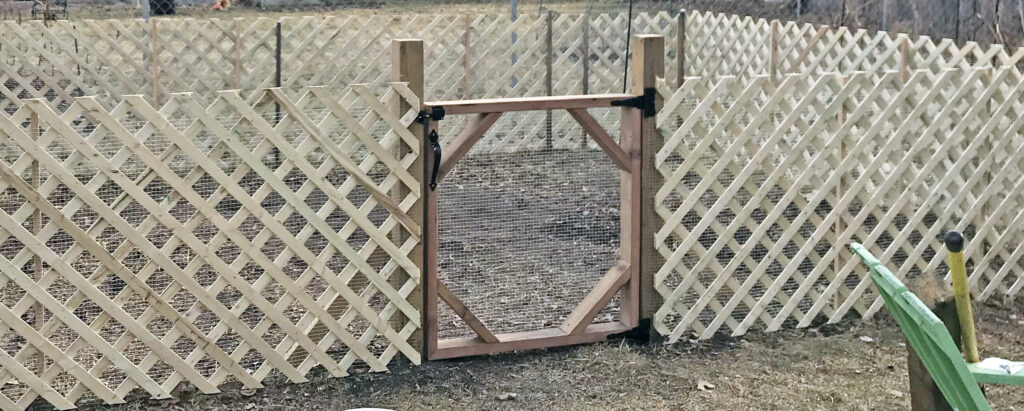Talking Plants
Jillian Patrie | University of Minnesota Yard and Garden Extension
A gardener’s biggest frustration can be animal damage and your time and money getting eaten up overnight. Animals need to eat too, but how can we keep them out of gardens and away from plants? Here are some tips and tricks for keeping your garden from turning into a buffet for our hungry neighbors.
Physical barriers like fencing are the most effective way to keep your garden safe, snow & chicken wire fencing is best for smaller animals like rabbits. If deer and other large animals are a problem, use tall (6’) or electric fencing. Netting can be an option for squirrels, birds and other climbers that can get past fences. If fencing isn’t an option, repellents are the next best thing, and they are generally not harmful to animals or humans.
Many repellent products use natural deterrents to keep animals away by using a combination of irritants or smells. These products come in various forms, such as powders, granules or ready to use liquids. For the best results choose one that is applicable to your situation and rotate between a few different products. Just like insecticides, animals develop a tolerance which can reduce the effectiveness of repellents. Here are ingredients to look for when shopping for animal repellents, hot pepper wax, dried blood, cinnamon, cloves, garlic, and putrescent whole egg solids. A few of these sound smelly, but they are generally mild to the human nose. If you want to take it one step further, you can purchase fox, wolf & coyote urine (these are smelly). Mint repellents will do the trick of keeping rodents away from homes, vehicles, and gardens. Application method and frequency will depend on each situation, but generally, repellents will need to be reapplied every few weeks and after a heavy rain. The key is to rotate products to keep the culprits guessing!
It is best to implement a combination of the above methods to ensure you are covering all the bases, but there are other repellent methods to consider. Plants can be used as a repellent for animals and insects too. Citronella Geranium, lemongrass & lemon balm keep mosquitoes away, plant them together and keep them on your patio. Marigolds can keep deer, rabbits, mosquitoes & many other garden pests away. There are many annuals, perennials, trees & shrubs that animals and insects prefer less than others. If you have issues with frequent animal damage these less desirable plants may be good options to have in your landscape.
Many gardeners experience bird & squirrel damage to trees and fencing or using repellents are not an easy option. For more challenging pests like woodpeckers, try hanging old CD’s or flash tape in trees. Fake owls can scare birds and squirrels away too. Again, as with previous methods listed above, rotation is key for best results.
For information visit extension.umn.edu/yard-and-garden-news/ , or questions about this article please contact local UMN Clay County Extension Educator Jill Patrie at patri350@umn.edu or by phone at 218-299-7338.


